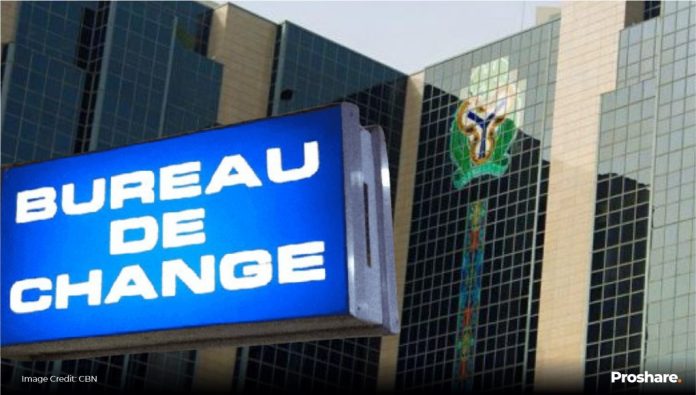The Central Bank of Nigeria (CBN) has mandated all existing Bureau de Change (BDC) operators to reapply for new licenses in their preferred categories. This directive was announced on Wednesday in a circular issued by Haruna Mustafa, Director of the Financial Policy and Regulation Department.
BDC operators have rejected the new licensing guidelines, arguing that they contradict global best practices. Despite this pushback, the CBN maintains that the new measures are designed to streamline BDC operations and enhance financial accessibility. The guidelines require adherence to corporate governance standards and anti-money laundering, counter-terrorism financing, and counter-proliferation financing regulations.
This directive follows the Monetary Policy Committee’s decision to raise the benchmark lending rate to 26.25% to combat rising inflation. The CBN Governor, Olayemi Cardoso, attributed recent foreign exchange market volatility to seasonal demand and the dynamics of a freely functioning market.
Since the unification of Nigeria’s exchange rates, the naira has depreciated significantly, trading between 1,400/$ and 1,600/$ in official and parallel markets over the past two weeks.
New Licensing Categories
The updated guidelines, effective June 3, 2024, introduce two new licensing categories: Tier 1 and Tier 2. The CBN removed the previously mandatory caution deposit, a contentious point for industry players.
Tier 1 BDCs can:
- Operate in any state and the Federal Capital Territory (FCT)
- Establish branches and appoint franchisees, subject to CBN approval
- Maintain a minimum distance of one kilometer between branches and franchisees
- Oversee franchisees, who must adopt the franchisor’s name, logo, branding, technology platform, and regulatory requirements
Tier 2 BDCs can:
- Operate in only one state or the FCT
- Establish up to five branches within their state of operation, subject to CBN approval
- Maintain a minimum distance of one kilometer between branches
- Are prohibited from appointing franchisees
Both new and existing BDCs must meet capital requirements within six months.
Aminu Gwadebe, President of the Association of Bureau de Change Operators of Nigeria, criticized the new requirements as excessive and inconsistent with global practices. He noted that capitalization requirements in countries like the UK and Kenya are significantly lower.
Gwadebe warned that Nigeria could face a scenario similar to Algeria, where stringent policies drove market players to open market operations, ultimately destabilizing the local currency exchange rate.
He also pointed out the short deadline for compliance, contrasting it with more extended timelines given to other sectors. Gwadebe argued that rushing the BDC sector might inadvertently facilitate money laundering instead of preventing it.
New Financial Requirements
Tier 1 BDCs must have:
- A minimum capital requirement of N2 billion
- A non-refundable application fee of N1 million
- A non-refundable license fee of N5 million
Tier 2 BDCs must have:
- A minimum capital base of N500 million
- A non-refundable application fee of N0.25 million
- A non-refundable license fee of N2 million
The new guidelines also allow BDCs to participate in the Nigerian foreign exchange market as dealers, subject to approval.
Compliance and Transparency
The CBN mandates that BDCs:
- Clearly display buying and selling rates across all branches and franchisees
- Avoid misleading price indications and ensure fair price comparisons
- Maintain adequate transaction records for transparency and compliance with CBN guidelines and regulations
Prudential Requirements
BDCs must adhere to prudential requirements, including:
- Maintaining a Net Open Position (NOP) limit in foreign currency equivalent to 30% of shareholders’ funds, or as determined by the CBN
- Limiting total borrowing to 50% of shareholders’ funds
- Ensuring insurance cover for cash (both naira and foreign currency), fire, and staff fidelity
These comprehensive measures aim to strengthen the BDC sector’s operational framework while ensuring compliance with regulatory standards.











